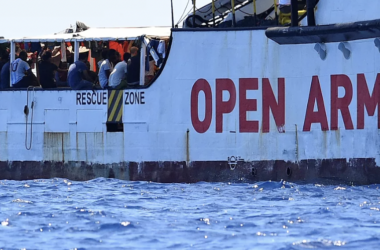In a dramatic shift that could reshape the dynamics of the Ukraine conflict, German Chancellor Friedrich Merz has officially authorized Ukraine to use German-supplied weapons against targets inside Russia—a break from the long-standing policy of limiting strikes to occupied Ukrainian territories.
Posting to X (formerly Twitter), Merz made his position crystal clear: “We will do everything in our power to continue supporting Ukraine. This also means no longer having any range restrictions on the weapons we supply.” He added that Ukraine has the right to defend itself by striking military positions inside Russia.
That’s not all. Merz extended this principle to other allied arms as well, stating that weapons delivered by France, the U.S., the U.K., and Germany would now be free of previous geographic constraints. Speaking at the WDR Europaforum 2025 in Berlin, Merz said plainly: “There are no longer any range restrictions.”
Merz’s move marks a clear break with former Chancellor Olaf Scholz, who had repeatedly blocked the delivery of long-range weapons like Germany’s Taurus cruise missiles out of fear it would pull Berlin deeper into the war. Those missiles, with a range of up to 500 kilometers, had become a lightning rod for debate both domestically and abroad.
Though Merz didn’t name the Taurus system specifically, his message suggests that such limitations are now off the table. Notably, recent polling has shown that a majority of Germans remain opposed to sending Taurus missiles to Ukraine—making Merz’s decision politically risky.
Yet the Chancellor appears to be betting that continued Russian aggression and fading hopes for diplomacy will shift public opinion—or at least justify firmer Western resolve.
The announcement comes amid a period of renewed intensity in the conflict. Russia’s recent drone and missile barrages on Ukrainian cities have drawn fierce condemnation across the West, including an unusually blunt remark from former U.S. President Donald Trump, who described Putin as “absolutely crazy” in a post on his Truth Social platform.
Meanwhile, Ukraine has already begun using long-range ATACMS missiles from the U.S. and British Storm Shadow cruise missiles to hit targets deep in Russian territory. Now, Germany’s green light adds one more layer to the growing list of NATO weapons that Kyiv can wield without geographical restrictions.
The trend echoes a warning issued two years ago by Hungarian Prime Minister Viktor Orbán, who pointed to the slippery slope of Western involvement: what began with helmets and body armor, he argued, had escalated to tanks, missiles, and now—potentially—a broader NATO role in the conflict.
Despite the growing military engagement, Merz insisted that Western countries have exhausted diplomatic avenues. “Nobody can now seriously blame us for not having tried,” he said, adding that Putin seems to interpret every peace overture as a sign of weakness. “A country that cannot strike back at its attacker’s military infrastructure,” Merz argued, “cannot truly defend itself.”
He also emphasized that Ukraine’s strikes must remain targeted, with no attacks on civilian areas—underscoring the difference, he said, between democratic defense and Russian aggression.
With this decision, Germany not only deepens its role in the Ukraine war but also sends a strong message to Moscow: no more limits. While Merz’s bold stance may rally hawks and frustrate doves, it marks a turning point in how Europe’s largest economy views its place in the fight.
What remains to be seen is how Russia will respond—and whether the West is truly prepared for the long war Merz warned is likely ahead.




